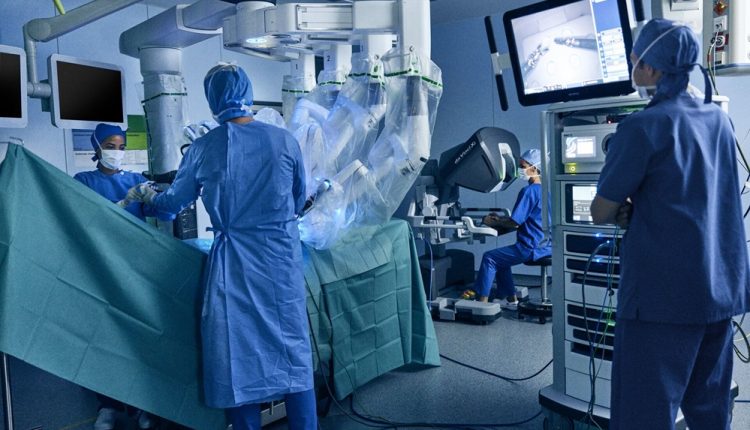Doctors at Bengaluru hospital use robotic-assisted surgery to save the life of a youngster with extremely rare hormone-secreting chest tumor
● 27-year-old man from Karnataka was diagnosed with a malignant thymic neuroendocrine tumor that disrupted his blood sugar and potassium levels, causing life-threatening complications
● Using advanced da Vinci technology, doctors removed the tumor from the central part of the chest without the need for an open sternotomy (a procedure where the breastbone is split to access the chest)
Bengaluru: Doctors at Manipal Hospitals, Bengaluru, successfully performed a rare and complex robotic-assisted surgery on a 27-year-old man with a malignant neuroendocrine tumor, a rare cancer of the thymus gland. He had come to the hospital with severe weakness, blood sugar levels above 500, dangerously low potassium, and widespread fungal and bacterial infections that had caused skin lesions. Tests confirmed that the tumor was releasing hormones which drove these imbalances and made his condition impossible to control with medicines.
Led by Dr. Devesh S Ballal, Consultant – Surgical Oncology & Robotic Surgery, the medical team removed the tumor along with surrounding lymph nodes using the da Vinci surgical robot. Conventionally, such a procedure requires an open sternotomy (splitting the breastbone to access the chest). Given the patient’s suppressed immunity and active infections, an open approach would have been too risky.
“The complexity of this case lay not only in the rarity of the tumor but also in the patient’s critical condition,” explained Dr. Ballal. “His potassium remained dangerously low despite intensive medical treatment, making anesthesia itself risky. Since the tumor continued to secrete hormones and medications had no effect, surgery was the only option. Robotic-assisted surgery allowed us to avoid splitting the sternum, thereby reducing the risk of infection and severe post-operative pain. The 3D vision and wristed instruments of the da Vinci platform gave us the precision to safely dissect and remove the tumor despite its proximity to vital structures.”
Dr. Ballal added that robotic-assisted surgery offered advantages not possible with other approaches. “While more common thymus tumors (thymomas) can sometimes be removed with VATS, a keyhole chest surgery, this rare cancerous tumor was more aggressive and not possible to remove via VATS as it had spread to lymph nodes on both sides of the chest and was also involving the nerve that controls respiration. Robotic assistance gave us the dexterity to operate in a confined space with minimal trauma, while sparing the patient the pain and complications of open chest surgery. When he went home, he was completely pain-free and his skin lesions had also resolved, showing how much his immune system had improved.”
The team later confirmed that his disease was at Stage 3, but importantly, it had not spread to other organs on PET scan. The patient will remain under close follow-up, with a repeat PET scheduled in three months. Cases like this are exceptionally rare. Thymic neuroendocrine tumors are exceptionally rare, with less than 500 cases reported worldwide to date.


